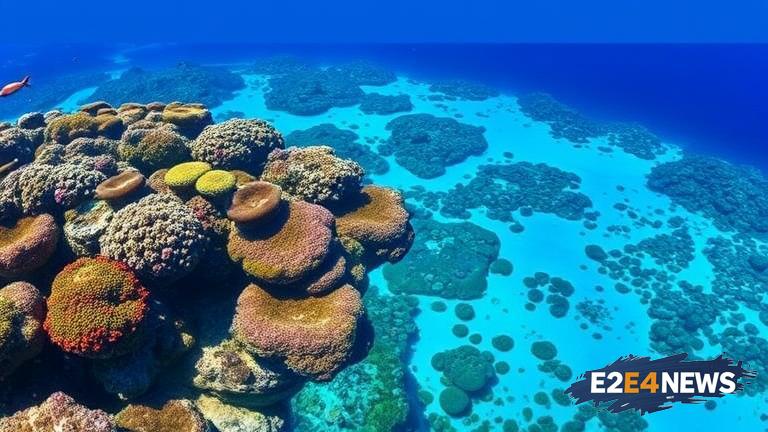The Great Barrier Reef, one of the most biologically diverse ecosystems on the planet, has suffered a record-high coral loss, according to recent reports. The reef, which stretches over 2,300 kilometers off the coast of Australia, has been facing numerous threats, including climate change, pollution, and overfishing. The latest data reveals that the reef has lost a significant amount of coral cover, with some areas experiencing losses of up to 30%. This devastating news has sparked concerns among conservationists, scientists, and policymakers, who are calling for immediate action to protect the reef. The Great Barrier Reef is not only an important ecosystem, but it also supports a significant portion of Australia’s economy, generating over AUD 6.4 billion per year. The reef is home to an incredible array of marine life, including over 1,500 species of fish, 600 species of coral, and many other creatures, such as sharks, rays, and turtles. The coral loss is attributed to a combination of factors, including rising sea temperatures, ocean acidification, and pollution from land-based activities. Climate change has been identified as a major contributor to the reef’s decline, with mass coral bleaching events occurring in 2016 and 2017. The Australian government has been criticized for its response to the crisis, with many arguing that more needs to be done to address the root causes of the problem. Conservation efforts are underway, including the establishment of marine protected areas and the implementation of sustainable fishing practices. However, more needs to be done to address the scale and complexity of the issue. The international community is also being called upon to support conservation efforts, with many organizations and governments pledging to help protect the reef. The loss of coral cover has significant implications for the many communities that depend on the reef for their livelihoods. Indigenous communities, in particular, have a deep connection to the reef and are working to protect their traditional lands and waters. The Australian government has established a number of initiatives aimed at supporting these communities, including the Reef 2050 Plan. However, more needs to be done to ensure that the needs and concerns of these communities are being addressed. The record-high coral loss on the Great Barrier Reef is a wake-up call for the world, highlighting the urgent need for action to protect our planet’s precious ecosystems. It is essential that we work together to address the root causes of this crisis and to support conservation efforts. The future of the Great Barrier Reef, and the many communities that depend on it, depends on our ability to take action and to make a difference. The clock is ticking, and it is imperative that we act now to protect this incredible ecosystem. The consequences of inaction will be severe, not just for the reef, but for the entire planet. We must work together to reduce our carbon footprint, to protect our oceans, and to preserve the natural beauty and biodiversity of our planet. The Great Barrier Reef is a national and international treasure, and it is our responsibility to protect it for future generations. We owe it to ourselves, our children, and the many communities that depend on the reef to take action and to make a difference. The time for action is now, and we must work together to ensure the long-term health and sustainability of the Great Barrier Reef.
